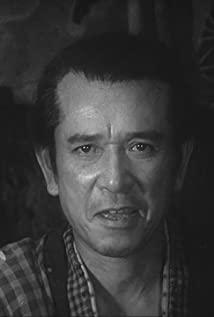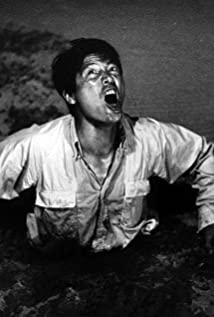How did the protagonist, who thinks about escaping from the sand world every day, was attracted to this world from the very beginning? And inexplicably missed the return bus, hesitantly chose to stay in the sand. In this harsh and simple environment, it actually started its own reproduction. Perhaps from a certain moment, he has been chosen by the god of sand, and at the same time, he has also unconsciously rejected the prosperity and vividness of the civilized world, hoping to return to a heavy and simple primitive life, such as settling with a woman life and sex, monotonous sand shoveling work. Of course, after he realized that his true freedom was the simplicity of being imprisoned by sand, it was after he struggled countless times to seek his so-called freedom.
On the contrary, a woman has a longing for the outside world. When she asked him if the women in Tokyo were all beautiful, the man denied it with a single word. When she wanted a radio, the man also did not respond. In fact, from the film Look, this woman is not a very closed woman, and there are some imprints of modern civilization that are reflected from her from time to time. Her attitude towards men is not far or near, and she seems to be yearning for the civilized world not far or near. In the film, we seem to be very clear about the ins and outs of the male protagonist, and we are also very clear about his positioning. Only this woman in the sand is actually a real mystery. How did she come here? How did you settle down? The movie doesn't explain it at all, as if she was born here, the goddess of the goddess who is one with the sand. In fact, it is not difficult to find that her behavior is not only not barbaric, but also has a certain cultivation and connotation. But her story ends with something as simple as a dead husband and daughter, and in the end she settles down and does the simple task of de-sanding with due diligence.
I don't know why, the film critics despised the evaluation of such a woman of sand, and to position her role from the ordinary relationship between men and women, in fact, both the male and female protagonists are very cute people, and there is no color in the whole article. The fullness and subtlety of the film supported by these two people is just right. And I don't think the villagers want them to perform the ceremony of Duke Zhou in person to make fun of them. On the contrary, the villagers treat their union behavior very seriously, which is equivalent to offering sacrifices and the like with a specific meaning in it. And in the face of the woman's pregnancy, the attitude of the villagers is far more enthusiastic than the male protagonist, as if the woman will give birth not to the male protagonist but to the children of the whole village.
Of course, we can understand the world of sand as marriage, a dull and restricted world. This dull world is not without merit, its content is monotonous, repetitive, slow, and full of material and spiritual lack. But love and sex, and a sense of accomplishment against the odds, offset those deficiencies. And the imminent arrival of new life, the inexplicable sense of responsibility, guilt, yearning and unease brought to this world have become the insurmountable charm of the sand world.
Outside the sand, we may have had our own pride, identity and freedom, but no matter how we try to grasp the so-called reason for our return, think about it, in the end, God is still hidden under the sand. A kind of maturity is a kind of abandonment. Everyone thinks differently when they weigh it.
View more about Woman in the Dunes reviews










